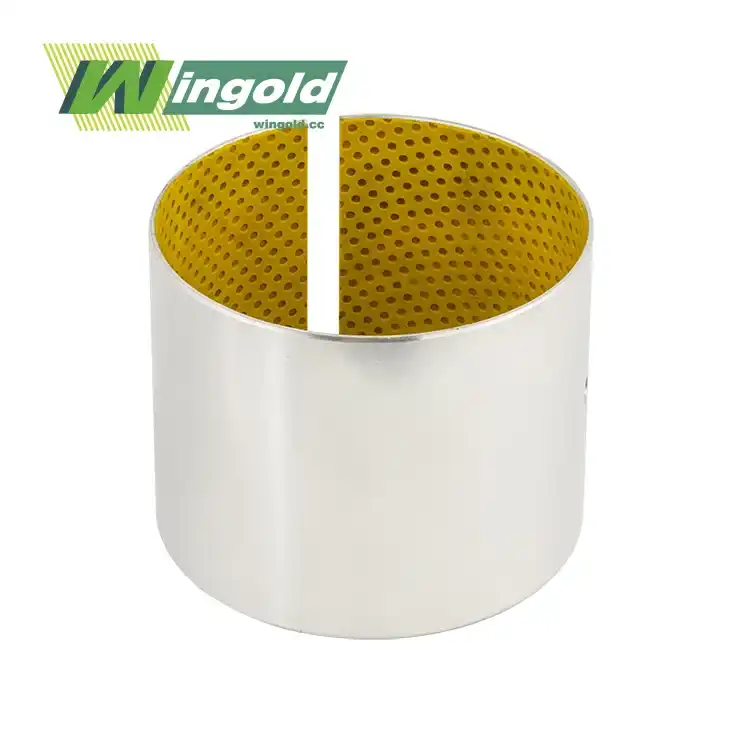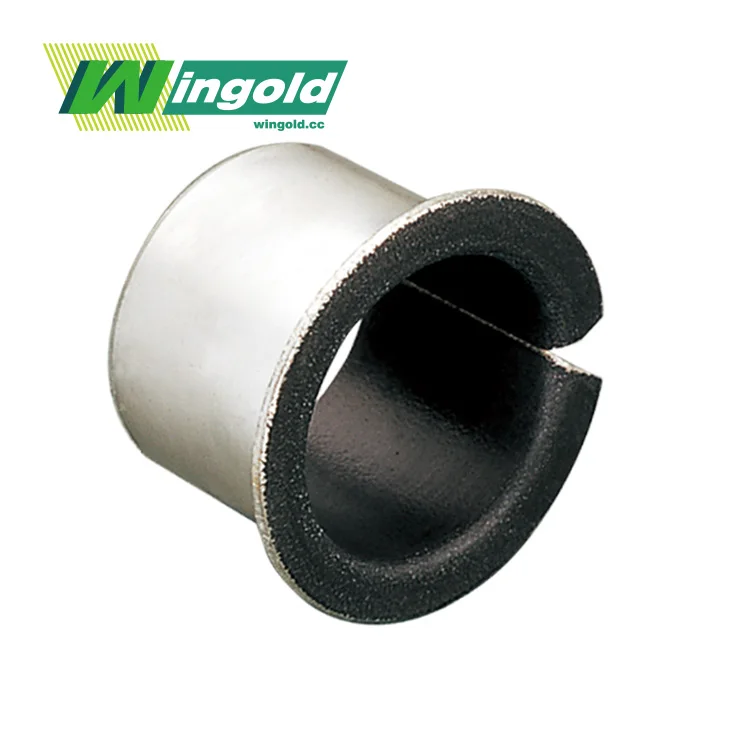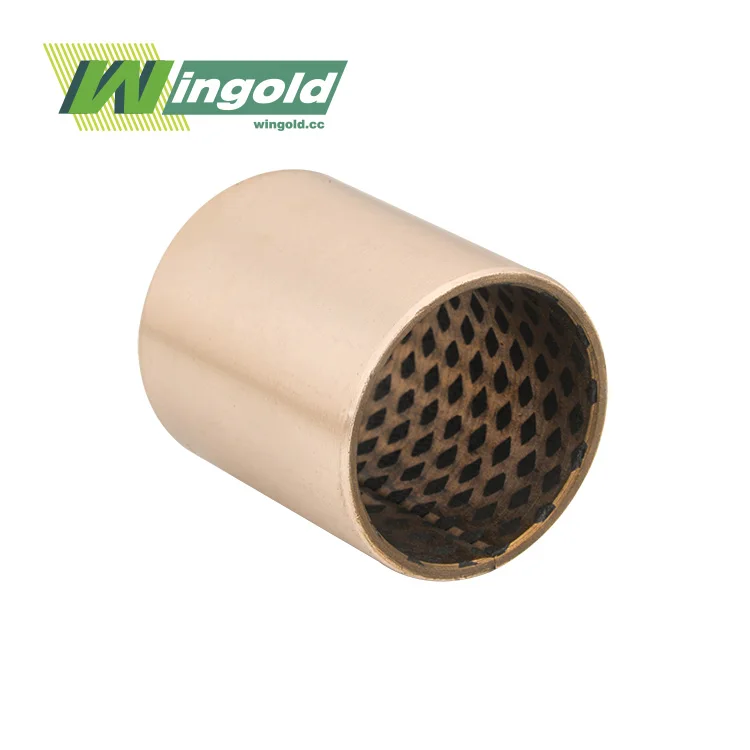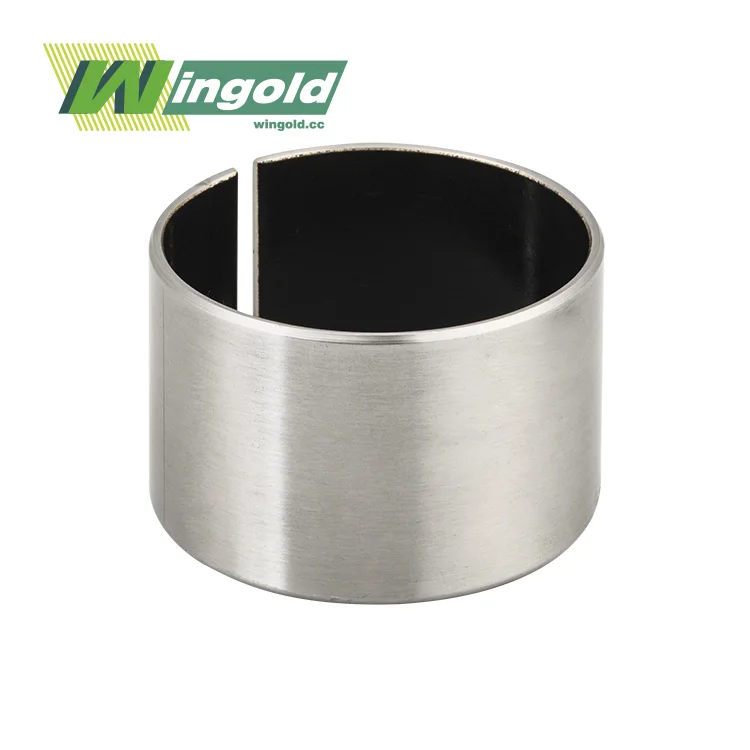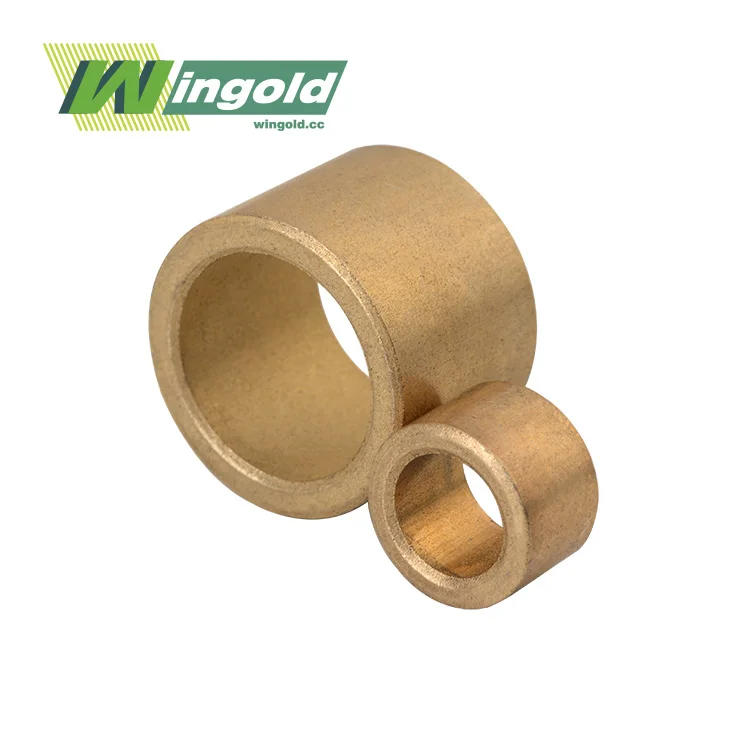The Evolution of Bearing Technology: From Metal to Polymer
Traditional Metal Bearings: Limitations and Challenges
Metal bearings have long been the standard in industrial applications. However, they come with inherent limitations. These components often require frequent lubrication, are susceptible to corrosion, and can be relatively heavy. In harsh environments or applications with high loads, metal bearings may experience premature wear, leading to increased maintenance costs and potential system downtime.
The Rise of Polymer Bearings: Addressing Industry Needs
Polymer bearings plain have emerged as a game-changing solution to the limitations of metal bearings. These innovative components are crafted from high-performance polymers, carefully selected to offer optimal friction reduction, wear resistance, and load-bearing capacity. The self-lubricating nature of polymer bearings eliminates the need for external lubrication, significantly reducing maintenance requirements and enhancing operational efficiency.
Polymer Bearings: A Leap in Material Science
The development of polymer bearings represents a significant advancement in material science. These bearings typically feature a steel back with sintered porous bronze powder and modified polyformaldehyde (POM), often incorporating oil indentations. This unique structure allows for superior performance in low-speed, medium-load applications under normal temperatures, offering extended service life and simplified replacement procedures.
Advantages of Polymer Plain Bearings
Self-Lubricating Properties: A Maintenance Revolution
One of the most significant advantages of polymer bearings lies in their inherent self-lubricating capability. This feature eliminates the requirement for external lubrication, thereby reducing maintenance costs, minimizing downtime, and enhancing operational efficiency. In industries where routine maintenance is both time-consuming and potentially dangerous—such as metallurgical mining machinery or heavy engineering equipment—this advantage is especially valuable. By removing the dependence on additional lubricants, polymer bearings also contribute to cleaner operations and lower environmental impact, further increasing their appeal across demanding industrial sectors.
Enhanced Durability and Corrosion Resistance
Unlike conventional metal bearings, polymer bearings plain exhibit outstanding resistance to corrosion, oxidation, and chemical degradation. This unique property makes them highly suitable for harsh working environments, including those encountered in water treatment plants, hydroelectric facilities, or the steel rolling industry. Their ability to maintain structural integrity under exposure to moisture, chemicals, or abrasive materials ensures a much longer service life. This extended durability reduces the frequency of replacements, decreases total operating costs, and guarantees reliable performance even in the most challenging industrial applications.
Weight Reduction and Energy Efficiency
Polymer bearings offer substantial weight advantages compared to traditional metal alternatives. This lightweight nature enhances system efficiency and is particularly beneficial in applications where weight reduction is critical, such as automotive chassis and transport systems. The lower mass reduces energy consumption during operation, while their inherently low friction coefficients decrease mechanical resistance and wear on adjacent components. This combination not only improves energy efficiency but also extends the lifespan of connected systems, making polymer bearings a smart choice for cost-effective, sustainable engineering solutions.
Applications and Industries Benefiting from Polymer Bearings
Automotive and Transportation
In the automotive sector, polymer plain bearings are widely applied in chassis assemblies, steering mechanisms, and suspension systems. Their capacity to handle fluctuating loads, resist wear, and operate quietly under diverse temperature ranges makes them indispensable for improving vehicle reliability and comfort. Additionally, their self-lubricating nature reduces the need for frequent servicing, enhancing the overall efficiency of automotive maintenance. By minimizing vibration and noise while maintaining smooth movement, polymer bearings contribute significantly to both performance optimization and passenger experience in modern transportation systems.
Industrial Machinery and Equipment
Heavy-duty sectors such as forging machine tools, metallurgical mining machinery, and engineering equipment rely heavily on the resilience of polymer bearings plain. These bearings maintain exceptional performance in high-stress conditions where traditional metal bearings may fail prematurely due to wear, corrosion, or excessive friction. Their robust composition ensures operational reliability over extended periods, reducing both downtime and replacement frequency. This durability makes polymer bearings particularly advantageous for continuous production processes, where equipment failure can lead to costly operational interruptions and significant losses in productivity.
Energy and Utilities
In energy production and utility services, polymer bearings provide a corrosion-resistant and maintenance-friendly solution. They are particularly effective in fluid-handling equipment such as pumps, valves, and turbines, where consistent exposure to moisture or chemicals can degrade traditional bearings. The ability to maintain performance in such environments ensures reliability for water supply systems, hydroelectric stations, and power plants. This reliability not only extends equipment lifespan but also ensures uninterrupted service delivery, making polymer bearings a trusted choice for critical infrastructure and utility operations.
Manufacturing and Processing
The manufacturing sector, including steel rolling mills and high-temperature processing plants, benefits greatly from the performance advantages of polymer bearings. Their ability to operate under heavy loads, withstand elevated temperatures, and resist chemical wear makes them ideal for production lines and industrial machinery. Self-lubricating properties reduce friction, while corrosion resistance ensures longer operational life even in abrasive or chemically aggressive conditions. These qualities collectively contribute to improved productivity, reduced maintenance schedules, and higher operational efficiency across various manufacturing and processing applications.
Conclusion
Polymer bearings plain represent a significant leap forward in bearing technology, offering a maintenance-free alternative to traditional metal bearings. Their unique combination of self-lubricating properties, durability, and versatility makes them an ideal choice for a wide range of industries and applications. As businesses continue to seek ways to improve efficiency, reduce maintenance costs, and enhance overall performance, the adoption of polymer bearings is likely to accelerate.
For those looking to explore the benefits of polymer bearings for their specific applications, Wingold Bearing offers customized solutions tailored to meet unique needs and requirements. With a commitment to innovation and quality, Wingold provides polymer bearings that stand out for their exceptional performance and cost-effectiveness. To learn more about how polymer bearings can revolutionize your operations, contact Wingold at info@wingold.cc.
FAQ
What are the main advantages of polymer plain bearings over metal bearings?
Polymer plain bearings offer self-lubrication, corrosion resistance, lightweight design, and reduced maintenance needs compared to metal bearings.
In which industries are polymer bearings commonly used?
Polymer bearings are widely used in automotive, industrial machinery, energy and utilities, and manufacturing sectors.
Can polymer bearings withstand high temperatures?
Yes, many polymer bearings can operate in temperatures ranging from -40°C to +150°C, making them suitable for various applications.
Are polymer bearings environmentally friendly?
Yes, their self-lubricating nature eliminates the need for external lubricants, contributing to a cleaner environment.
